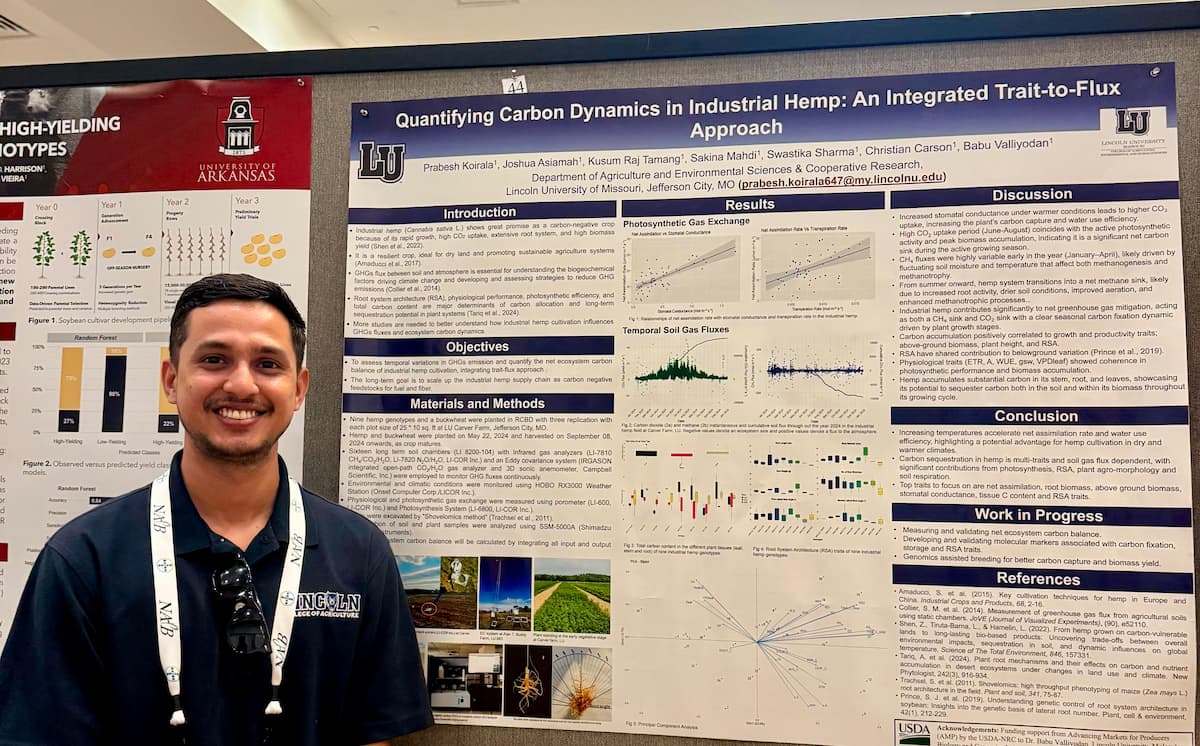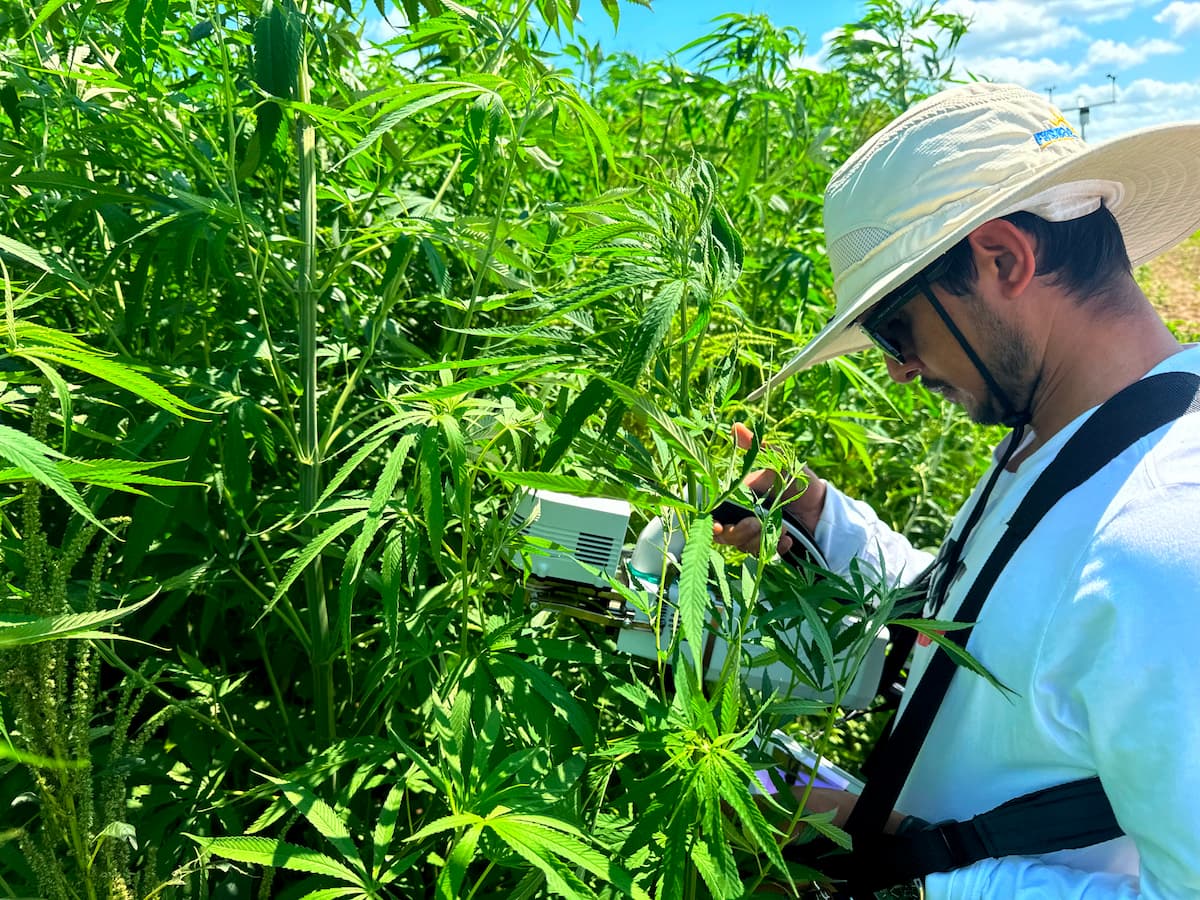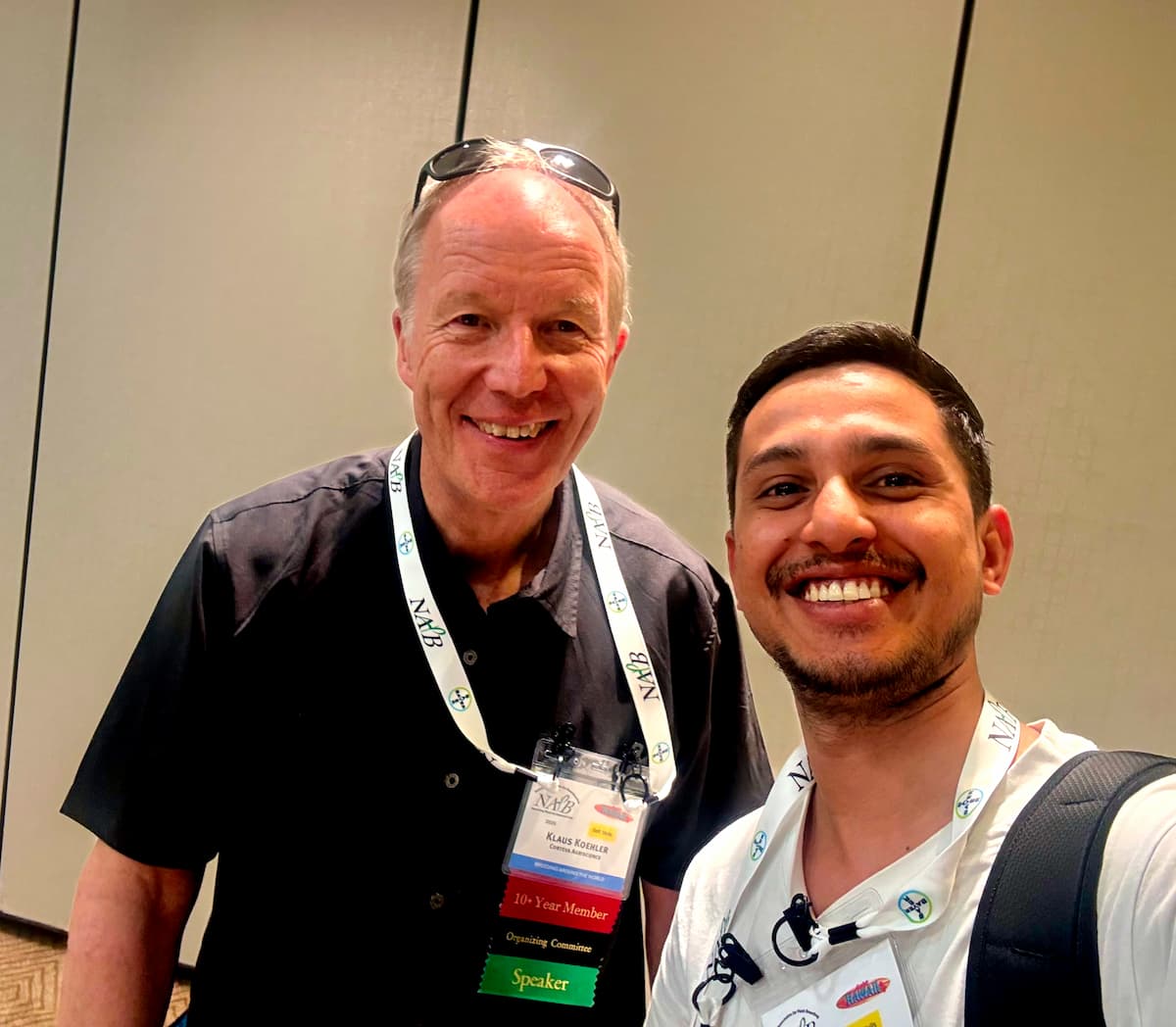Lincoln University Graduate Student Named 2025 Borlaug Scholar
Office of Communications and Marketing
Young Hall
820 Chestnut Street
Jefferson City, MO 65101
 Prabesh Koirala, a graduate student in sustainable agriculture at Lincoln University of Missouri, stands next to his research poster, “Quantifying Carbon Dynamics in Industrial Hemp: An Integrated Trait-to-Flux Approach.”
Prabesh Koirala, a graduate student in sustainable agriculture at Lincoln University of Missouri, stands next to his research poster, “Quantifying Carbon Dynamics in Industrial Hemp: An Integrated Trait-to-Flux Approach.”
Prabesh Koirala, a graduate student in sustainable agriculture at Lincoln University of Missouri (LU), earned the title of 2025 Borlaug Scholar from the National Association of Plant Breeders (NAPB). He is the only student from an 1890 land-grant institution selected for this year’s cohort, which includes undergraduates, master’s and Ph.D. students from across the country.
The Borlaug Scholars program is named in honor of Nobel Peace Prize winner Dr. Norman Borlaug, a pioneering agricultural scientist whose development of high-yield wheat varieties helped combat famine in Asia, Africa and beyond. The award includes full sponsorship to the NAPB Annual Meeting, a yearlong mentorship with a senior scientist and five-year membership in the organization.
“I’m really honored to be selected,” Koirala says. “It’s a competitive award, and being the only scholar from an 1890s institution in the 2025 cohort means a lot.”
Koirala traveled to the NAPB Annual Meeting in Kona Island, Hawaii, from May 19–23 to present his research on hemp and climate change. His project, Quantifying Carbon Dynamics in Industrial Hemp: An Integrated Trait-to-Flux Approach, explores how industrial hemp can serve as a carbon-negative crop, helping to reduce greenhouse gas emissions.

Prabesh Koirala collects physiological data from industrial hemp plants as part of his carbon dynamics research at Lincoln University’s Carver Farm.
“After the 2018 Farm Bill, there was a lot of interest in hemp research,” Koirala says. “Hemp has a lot of potential. It can help mitigate climate change by absorbing atmospheric carbon. It also has many uses — in fiber, textiles, fuel, food, medicine and even cleaning up the land.”
The research was conducted at LU’s George Washington Carver Farm under the guidance of Molecular Biology Professor Dr. Babu Valliyodan and supported by the university’s Molecular Biology and Genomics Lab. Koirala studied how nine different hemp varieties take in and store carbon, both in the plant and in the soil. He measured photosynthetic efficiency, root system architecture, plant growth and gas exchange to identify which varieties may be most effective at capturing carbon and reducing greenhouse gases.
This kind of research matters, Koirala explains, because plants capable of absorbing more carbon can help fight climate change. By identifying hemp varieties that retain more carbon in their roots and soil, his work paves the way for farming practices aimed at reducing emissions and improving environmental health—all in support of sustainable agriculture.
 Prabesh Koirala, a Borlaug Scholar from Lincoln University of Missouri, with his mentor Dr. Klaus Koehler at the 2025 National Association of Plant Breeders (NAPB) Annual Meeting in Kona, Hawaii.
Prabesh Koirala, a Borlaug Scholar from Lincoln University of Missouri, with his mentor Dr. Klaus Koehler at the 2025 National Association of Plant Breeders (NAPB) Annual Meeting in Kona, Hawaii.
As part of the award, Koirala paired with Dr. Klaus Koehler, a senior scientist and global talent lead at Corteva Agriscience, a global agricultural company specializing in seed technology, crop protection and digital farming solutions.
“I meet with my mentor once a month,” Koirala says. “He shares his experience, and I get to ask questions about education, leadership and how to grow my career. It’s a great opportunity to learn and improve.”
Koirala’s selection as a 2025 Borlaug Scholar highlights both his dedication to sustainable agriculture and the growing impact of Lincoln University’s research programs. Through national recognition, hands-on research and mentorship from industry leaders, Koirala is advancing solutions to some of agriculture’s most urgent global challenges — while representing the strength and promise of 1890 land-grant institutions.
